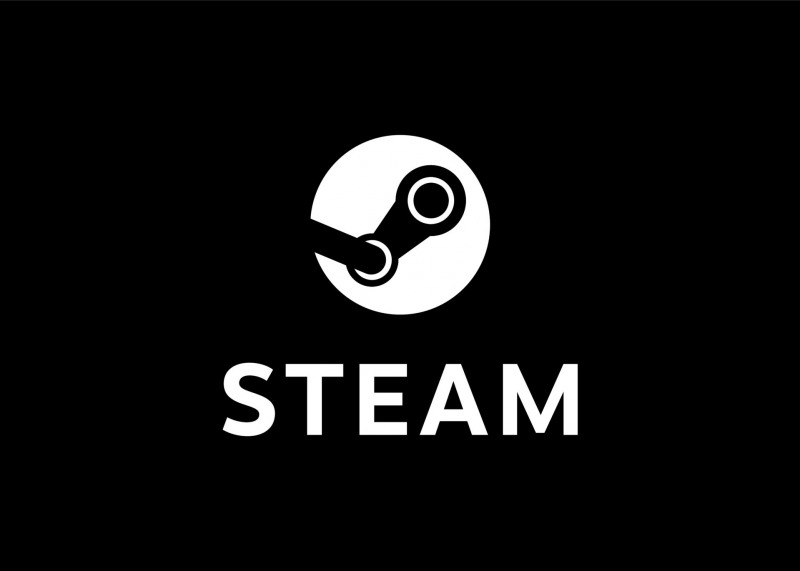Table of Contents Show
Steam has long dominated the digital video game distribution landscape, boasting a user base of over 120 million active players as of 2021. The platform, owned by Valve Corporation, has been the go-to destination for gamers looking to purchase, play, and engage with a vast library of video games across all genres. However, the question arises: Are there viable alternatives to Steam? With the rapid evolution of the gaming industry, the emergence of new platforms, and the changing preferences of gamers, it’s worth exploring the alternatives that could challenge Steam’s dominance.
1. Epic Games Store
The Epic Games Store (EGS) is perhaps the most significant competitor to Steam in recent years. Launched in December 2018, EGS has made a name for itself by offering a compelling mix of exclusive titles, developer-friendly revenue splits, and a steady stream of free games.
Exclusivity and Free Games
One of EGS’s most talked-about strategies is its acquisition of exclusive rights to high-profile games. Titles like “Fortnite,” “Borderlands 3,” and “Control” have been available exclusively on EGS for a period before being released on other platforms, including Steam. This strategy has been controversial but effective in driving traffic to the platform. Additionally, EGS’s practice of giving away free games every week has attracted a large number of users. These aren’t just obscure indie titles either; games like “Grand Theft Auto V,” “Civilization VI,” and “Among Us” have been part of their giveaways.
Developer-Friendly Revenue Split
Another key selling point of EGS is its revenue split. Unlike Steam, which takes a 30% cut of game sales, EGS only takes 12%, giving developers a larger share of the profits. This has attracted many indie developers and even some larger studios to release their games on EGS, either exclusively or alongside a Steam release.
User Experience
While EGS has made strides in building its library and user base, its platform still lacks some of the features that have made Steam so popular. For example, EGS does not have as robust a community feature set, including forums, user reviews, and workshop support for mods. However, Epic Games has been gradually improving the platform, adding features like achievements, cloud saves, and more.
2. GOG.com (Good Old Games)
GOG.com, operated by CD Projekt, the creators of “The Witcher” series, is another significant alternative to Steam. GOG was originally founded to distribute classic PC games, but it has since expanded its library to include modern titles as well.
DRM-Free Philosophy
One of the standout features of GOG is its commitment to being DRM-free. This means that when you purchase a game on GOG, you own it outright without the need for a client or an internet connection to play. This is in stark contrast to Steam, where you typically need to be connected to the internet and use their client to access your games. For gamers who value ownership and the ability to play their games without restrictions, GOG offers a compelling alternative.
Curated Library and Classic Games
GOG is known for its carefully curated library, which includes both modern hits and a wide selection of classic games. Many of these older titles are not available on Steam, making GOG the go-to platform for retro gamers. Additionally, GOG ensures that these classic games are updated to work on modern systems, often including extra content like soundtracks and wallpapers.
GOG Galaxy
To compete with Steam’s feature-rich platform, GOG has developed GOG Galaxy, a client that allows users to manage their game libraries, track achievements, and connect with friends across multiple platforms. GOG Galaxy 2.0 even allows users to integrate their libraries from other platforms like Steam, EGS, and PlayStation Network into a single interface, which is a feature many gamers appreciate.
3. Origin (EA App)
Origin, now transitioning to the EA App, is Electronic Arts’ (EA) digital distribution platform. While it initially received mixed reviews due to its limited library and technical issues, EA has made significant improvements over the years.
Exclusive EA Titles
One of Origin’s biggest draws is its exclusive access to EA’s vast library of games. This includes popular franchises like “FIFA,” “Battlefield,” “The Sims,” and “Mass Effect.” These games are often not available on other platforms, making Origin the only choice for fans of these series.
Subscription Service
Origin offers a subscription service called EA Play (formerly Origin Access), which provides access to a vast library of EA games for a monthly or annual fee. This service includes early access to new EA titles, exclusive in-game content, and discounts on purchases. For gamers who are heavily invested in EA’s ecosystem, this can be a cost-effective way to access a wide range of games.
Platform Limitations
Despite its improvements, Origin still lags behind Steam in terms of features and user experience. The platform’s interface has been criticized for being clunky and unintuitive, and it lacks some of the social and community features that make Steam so engaging. However, EA’s commitment to improving the platform, including the transition to the EA App, suggests that Origin will continue to be a viable alternative for fans of EA games.
4. Uplay (Ubisoft Connect)
Ubisoft’s Uplay, now rebranded as Ubisoft Connect, is another alternative to Steam, particularly for fans of Ubisoft’s franchises like “Assassin’s Creed,” “Far Cry,” and “Tom Clancy’s” series.
Exclusive Ubisoft Titles
Like EA with Origin, Ubisoft Connect is the exclusive home to many of Ubisoft’s games. If you’re a fan of Ubisoft’s titles, you’ll need to use their platform to access these games, as many of them are not available on Steam or other services.
Cross-Platform Ecosystem
Ubisoft Connect offers a cross-platform ecosystem where players can access their game progress, achievements, and rewards across different devices. This means that if you start a game on your PC, you can continue where you left off on your console. Ubisoft Connect also offers a loyalty program where players can earn points by completing in-game challenges and use them to unlock rewards.
Subscription Service
Ubisoft also offers a subscription service called Ubisoft+, which gives players access to a vast library of Ubisoft games, including new releases, for a monthly fee. This service is similar to EA Play and provides good value for players who enjoy Ubisoft’s games and want access to a broad range of titles.
Platform Drawbacks
Despite its strengths, Ubisoft Connect still suffers from some of the same issues as Origin, including a less polished user interface and a lack of community features compared to Steam. However, for fans of Ubisoft’s games, it’s a necessary platform, and the cross-platform features add significant value.
5. Itch.io
Itch.io is a lesser-known platform but one that has carved out a niche for itself, particularly among indie developers and gamers looking for unique and experimental games.
Indie-Focused
Itch.io is known for its vast library of indie games, many of which are not available on Steam or other platforms. It has become a popular choice for indie developers due to its flexible revenue split, which allows developers to set their own price and decide how much of the proceeds go to the platform. This developer-friendly approach has attracted a wide range of creative and innovative games, often with a strong focus on experimental gameplay and unique narratives.
Open Platform
Itch.io is an open platform, meaning that anyone can upload their game for free or for sale. This has resulted in a diverse library of games, ranging from polished indie titles to experimental projects, game jams, and early prototypes. For gamers who enjoy discovering hidden gems and supporting independent developers, Itch.io offers a refreshing alternative to the more commercialized platforms.
Community and Game Jams
Itch.io has a strong community focus, with many developers and players participating in game jams, where developers create games in a short period based on specific themes or constraints. These events have produced some of the most interesting and innovative games on the platform. Additionally, the community features on Itch.io, such as forums and comment sections, allow for direct interaction between developers and players, fostering a sense of community and collaboration.
6. Microsoft Store and Xbox Game Pass
The Microsoft Store, along with Xbox Game Pass, represents another significant alternative to Steam, particularly for gamers who are already invested in the Xbox ecosystem.
Xbox Game Pass
Xbox Game Pass is a subscription service that gives players access to a large library of games for a monthly fee. The service includes first-party Microsoft titles like “Halo,” “Gears of War,” and “Forza,” as well as a rotating selection of third-party games. One of the key advantages of Xbox Game Pass is that it often includes new releases from Microsoft Studios on the day they launch, providing incredible value for gamers.
Cross-Platform Play
The integration of Xbox Game Pass with the Microsoft Store on PC means that many games available on Xbox consoles are also playable on PC. This cross-platform play, combined with cloud saves and cross-buy options, makes it easy for gamers to switch between their Xbox and PC while maintaining their progress.
Cloud Gaming
Microsoft’s cloud gaming service, included with Xbox Game Pass Ultimate, allows players to stream games directly to their devices without needing powerful hardware. This feature, known as Xbox Cloud Gaming (formerly xCloud), enables gamers to play high-quality games on devices that would otherwise not support them, such as smartphones and tablets.
Store Limitations
However, the Microsoft Store has its drawbacks. The store’s interface is often criticized for being cumbersome, and the selection of non-Microsoft games is more limited compared to Steam. Furthermore, the Microsoft Store lacks some of the community features that make Steam engaging, such as user reviews, forums, and mod support.
7. Humble Bundle and Humble Store
Humble Bundle started as a platform offering bundles of games at pay-what-you-want prices, with a portion of the proceeds going to charity. Over the years, it has expanded into a full-fledged digital storefront, the Humble Store, which sells games individually.
Charitable Contributions
One of the unique aspects of Humble Bundle is its focus on charity. Every purchase made through Humble Bundle or the Humble Store contributes to a charity of the buyer’s choice. This model has resonated with many gamers who appreciate the opportunity to support good causes while purchasing games.
DRM-Free and Steam Keys
Humble Store offers a mix of DRM-free games and Steam keys. This gives users the flexibility to choose how they want to manage their game libraries. Some games purchased through Humble Store can be downloaded directly, while others require activation on Steam. This flexibility, combined with frequent sales and bundles, makes Humble Store a popular choice among budget-conscious gamers.
Subscription Service
Humble Choice is a subscription service offered by Humble Bundle, where subscribers receive a selection of games each month. These games are typically a mix of indie and AAA titles, and subscribers can keep the games even after their subscription ends. This service is similar to Xbox Game Pass and PlayStation Plus in its value proposition but with a unique twist in its focus on charity.
Conclusion
While Steam remains the dominant force in digital game distribution, there are several viable alternatives that cater to different needs and preferences within the gaming community. Platforms like the Epic Games Store and GOG.com offer compelling alternatives for those seeking exclusivity, developer-friendly revenue splits, or DRM-free experiences. Meanwhile, services like Xbox Game Pass and Humble Bundle provide unique value propositions through subscription models and charitable contributions.
For gamers, the existence of these alternatives is a boon, as it encourages competition and innovation within the industry. Whether you’re looking for the latest AAA titles, indie gems, or classic games, there is likely an alternative to Steam that suits your gaming needs. The choice ultimately depends on what you value most in a gaming platform, be it game selection, price, user experience, or community features. As the gaming landscape continues to evolve, these alternatives will likely become even more robust, offering gamers more options than ever before.









